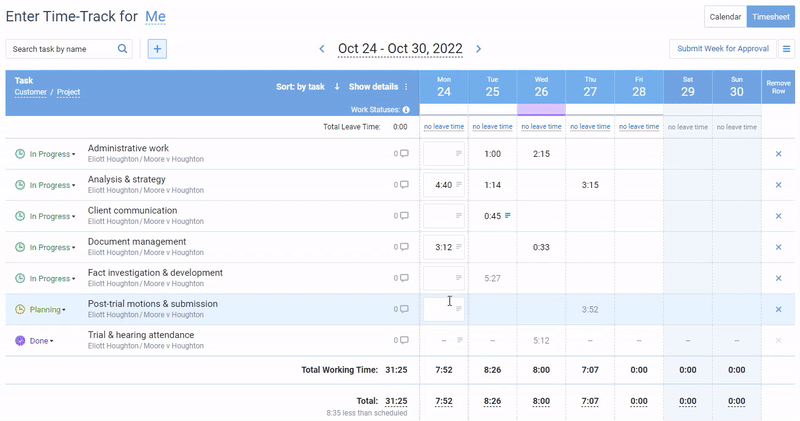
Are you a marketing professional looking to take your career to the next level? If so, becoming a marketing project manager might be just the opportunity you have been searching for.
As a marketing project manager, you will have the chance to oversee and manage the entire marketing project, from start to finish, helping your team deliver exceptional results. With that being said, let’s explore how to become a marketing project manager step by step.
1. Gain Relevant Experience
As an aspiring marketing project manager, relevant experience is key to landing a job in this highly competitive field. And here are a few ideas on how to get it:
- Develop a clear understanding of marketing project management: Marketing project managers oversee the planning, execution, and delivery of marketing campaigns and initiatives. This role requires the coordination of various teams, including creative, content, social media, and analytics teams. Therefore, it is essential to do your research and understand the different stages of a marketing project’s life cycle, including ideation, planning, execution, and evaluation. This knowledge will be invaluable when you start working on your first marketing project.
- Pursue formal education or training: Marketing project managers often have a degree in marketing, business administration, management, or a related field that provides the foundational knowledge necessary to succeed in the role. You can take up courses or enroll in programs that offer training in marketing project management. Online courses like Coursera, edX, and LinkedIn Learning are great resources to get started. If you are committed to pursuing a degree, consider enrolling in an undergraduate or graduate program that offers coursework in marketing project management.
- Build your network: Networking is critical when it comes to getting relevant experience in marketing project management. You can connect with marketing professionals, attend marketing events, join online groups, and participate in webinars. This way, you will get opportunities to stay up-to-date with industry trends and to build relationships with people who can help you gain experience in marketing project management.
- Start with internships, freelancing, or volunteer work: Getting experience in marketing project management requires hands-on experience. You can start by exploring internships, freelancing, or volunteering opportunities that allow you to work alongside experienced marketing professionals, learn how they operate, and contribute to marketing projects’ execution. If freelancing is your preferred option, you can work on small projects for local businesses or start-ups to build your portfolio.
2. Master Time Management
As a marketing project manager, time is a precious commodity that needs to be managed effectively in order to ensure the timely completion of projects within set deadlines. Whether you’re working with a small or large team, managing multiple projects at the same time, or planning to take on more marketing responsibilities, it’s crucial to develop and improve your time management skills. Here are some ways to help you do just that:
- Set clear goals and priorities: Start by identifying the most important tasks and assignments that need to be completed in order to successfully achieve your project goals. Developing a clear understanding of these goals and priorities will help you to stay focused and avoid getting distracted by unimportant tasks.
- Create a schedule: Once you have established your priorities, create a schedule or timetable that allocates specific times for each task or activity. This will help you manage your time effectively and discourage procrastination.
- Use project management tools: Utilizing a high-quality project management tool can help you streamline your work process, keep track of your progress and deadlines, and ensure that team members are completing their tasks on time. Tools such as Trello and Asana provide an easy-to-use interface that will make your work more efficient.
- Minimize distractions: Avoid distractions as much as possible by setting aside specific times to check email or social media, and turning off notifications that may interrupt your workflow. Additionally, try to limit unscheduled interruptions to your work day.
- Use time-saving techniques: There are several time-saving techniques that you can incorporate into your daily work routine. Strive to tackle the most difficult and time-sensitive tasks early in the day when you are most productive. Delegate tasks that can be completed by other team members, and avoid multitasking as it can negatively impact productivity and the quality of work.
- Track time: Time tracking lets you obtain an accurate and real-time representation of how long it takes to complete each task and the overall time to complete the entire project. By assembling this information, you can validate expectations and assumptions about resource allocations and see where the project team members are succeeding or struggling.
Pro tip:
actiTIME is an excellent time tracker for marketing project managers. It offers multiple time tracking modes, intuitive features for work planning and progress monitoring, and a bunch of handy visual charts and reports for in-depth data analysis.

To check actiTIME in action and improve your time management skills with its help, make sure to sign up for a free 30-day trial here. 👈

3. Work on Other Essential Skills
To become a successful marketing project manager, it’s vital to develop the essential skills required for the job. You will need to have a deep understanding of marketing principles, including branding, customer behavior, and messaging strategy. Additionally, you should have excellent critical thinking skills, the ability to delegate tasks effectively, and be proficient in managing complex projects.
Here are some of the main areas you need to focus on on your skills development journey:
- Leadership: Having basic leadership skills is of great importance. If you haven’t considered yourself as a leader before, well, it’s time to do so. You may be called to spearhead different projects and provide guidance to other members of your team. So, you need to be able to inspire them and guide them in the right direction.
- Communication competence: As a marketing project leader, you’ll have to communicate with everyone involved, both verbally and in writing. Especially in cases that external parties such as agencies are involved, then coordination and communication are critical. So, a project manager relies on their solid competence in communication, and they need to keep improving upon communication skills since they act as an intermediary between all sides. They must also be empathetic about the coworkers’ situations and express themselves properly.
- Negotiation and problem solving: Marketing teams rely on a group of different people to work. So, not every member of the team will always agree on everything that’s being done. A good manager can solve conflicts quickly by acting as a negotiator offering a unique angle and opinion regarding the existing problem. To do that, they have to view things from coworkers’ perspectives and face problems as a challenge. In this way, they will be striving for a good outcome of the conflict, and useful experience will be gained for the future.
4. Get Familiar with Marketing Tools
One of the most critical responsibilities for a marketing project manager is to understand the marketing tools used in the industry. Familiarize yourself with marketing automation, data analysis, project management software, and other relevant tools. Also, take the time to research the companies you would like to work for and learn what kind of tools they use.
Here are some of the main categories of marketing tools that are widely used by businesses today:
- Customer relationship management (CRM) software: It enables companies to store customer data, track interactions with customers, and manage customer relationships more effectively. By leveraging insights generated through CRM tools, businesses can personalize their marketing strategies and stay ahead of the competition. Popular CRM software includes HubSpot, Salesforce, and Zoho.
- Social media management tools: Social media platforms have become an integral part of marketing strategies, and social media management tools allow businesses to streamline the process of managing their social media presence. These tools offer a range of functionalities, such as scheduling posts, monitoring engagement metrics, and conducting social listening activities. Some popular social media management tools are Hootsuite, Buffer, and Sprout Social.
- Email marketing software: Email marketing remains one of the most effective digital marketing channels, and email marketing software helps businesses to create promotional emails, newsletters, and autoresponders. It also enables businesses to segment their email lists, track email open and click-through rates, and automate email campaigns. Popular email marketing software includes Mailchimp, Campaign Monitor, and Constant Contact.
- Marketing automation tools: Marketing automation tools allow businesses to automate and streamline their marketing tasks and workflows. These tools can handle a range of tasks such as lead generation, email automation, and campaign management. Marketing automation software can also track customer behavior, score leads, and send targeted messages across multiple channels. Popular marketing automation tools include Marketo, Pardot, and Eloqua.
- Content management systems (CMS): Such systems allow businesses to create, store, and manage digital content. They enable businesses to manage their website content, facilitate collaboration, and ensure content consistency across multiple channels. Popular CMS platforms include WordPress, Drupal, and Joomla.
5. Polish your Resume and Cover Letter
Your resume and cover letter are the first impressions you give to potential employers. Ensure that they are polished, professional, and tailored to the position you’re applying for. Highlight your project management skills, marketing experience, and any relevant certifications or coursework you may have completed.
Here are some steps to take to ensure your documents stand out to potential employers:
- Tailor your resume and cover letter to the job you are applying for: Use keywords from the job description and highlight how your experiences align with the requirements of the role.
- Quantify your achievements and results wherever possible: For example, if you managed a successful marketing campaign, include details on the reach, engagement, and conversion rates.
- Showcase your skills in project management: This includes risk assessment, budget management, and communication with both internal and external stakeholders. Highlighting experience with particular tools or methodologies can also be helpful.
- Use a professional format and design for your resume and cover letter: And don’t forget to ensure that they are easy to read and visually appealing.
- Proofread and edit your documents thoroughly: Typos or grammar mistakes can detract from your professionalism and attention to detail.
How to Become a Marketing Project Manager: Takeaway
Becoming a successful marketing project manager is a journey that requires dedication, hard work, and continuous learning. By following these steps, you can gain the skills and experience necessary to achieve your career goals.
Remember to stay current on marketing trends, build your network, and never stop learning. With determination and perseverance, you are sure to become an excellent marketing project manager!

















































